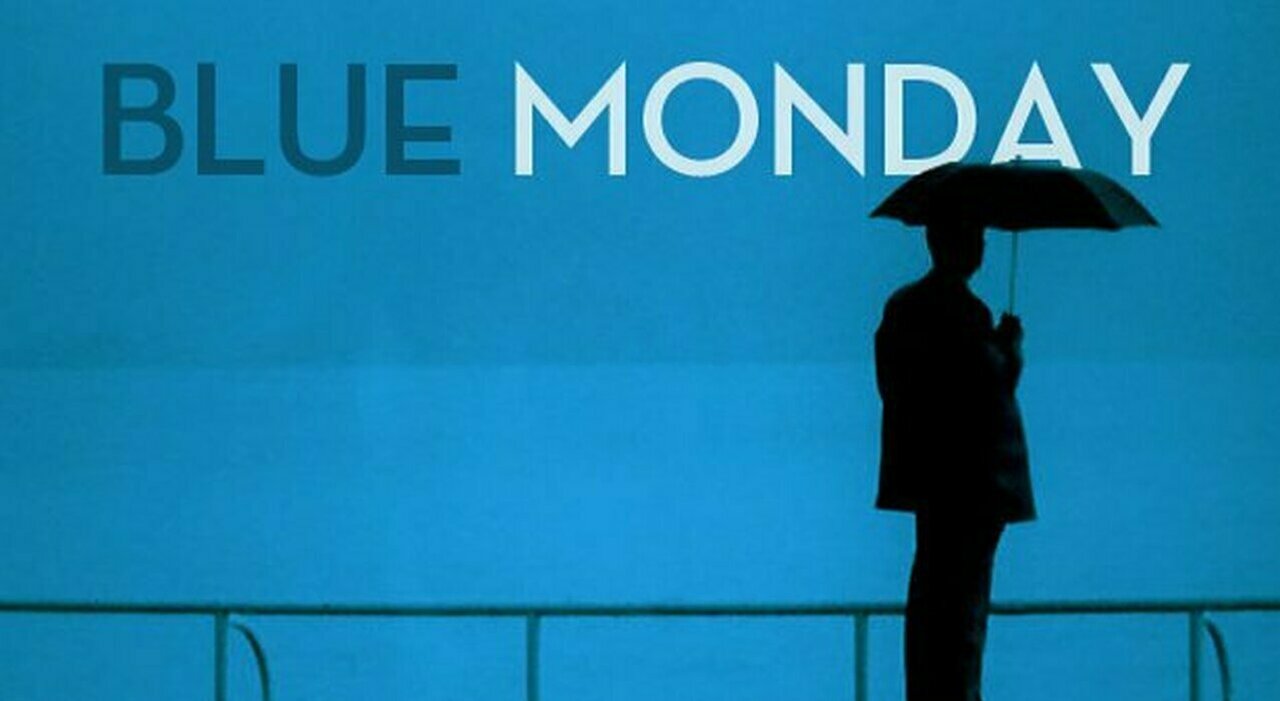Blue Monday, coming next Monday, January 16, is the "saddest day of the year". This definition was formulated by an equation made in 2005 by Dr. Cliff Arnal. Something real and tangible remains in the sadness that strikes after the closing of Christmas holidays: we return to work but above all the horizon of the next holidays appears very far away.
Today is "Blue Monday", the saddest day of the year. But why?
Psychologists' demand, increasing in 2023
The trend of requests for psychologists in January is skyrocketing, in fact, analysts have found that the week of Blue Monday, in some cases, exceeds by more than 10 percentage points the searches for psychologists made in the first seven days of the year. In January 2023, for example, requests made in conjunction with the "sad Monday" reached the highest peak of the month, at 28%, compared to 17% of the first week and a monthly average of 20%. A similar trend was recorded in 2022, 2021 and 2020, where in the week of Blue Monday, respectively, 24%, 22% and 25% of requests were concentrated, against a monthly average that has always stood around 20%.
Stress and panic attacks, the most common problems
The data collected by ProntoPro confirm it: considering all the requests for psychological support recorded by the portal, over 60% of those looking for the service do so for problems related to anxiety, stress, panic attacks and fears, a need grown by 5% compared to 2022. At the same time, among the most common reasons to turn to a specialist there are also personality problems, such as low self-esteem or anger, which affect 50% of the applicants. Lower, however, according to the WHO, the number of users who request a consultation for relational problems (32%), depression (29%), trauma (20%), sexual or couple problems (18%), eating disorders (12%) or addictions (7%). 26% of users are finally looking for a generic consultation.
Age group 10-18 for eating disorders, over 50 for depression
The age groups show some specifics. For example, ProntoPro analysts have indicated that boys between the ages of 10 and 18 are those who most resort to therapy for eating disorders (a need expressed by 16% of them, a full 4 percentage points higher than the 12% national average of those looking for psychological support); between the ages of 26 and 35, on the other hand, therapy is sought, more than other age groups, for addictions (10%) but also for relational problems (33%), the latter data is higher only in the 19-25 age group. Among the 36-50 year olds, there is the highest percentage of search for support for couple problems (27% of requests, compared to the national average of 18%). Parents worried about children under 10 are mainly looking for a generalized consultation, while requests for depression come particularly from those over 50.
Mencacci: "Depression along with other mental illnesses has a seasonal trend"
Psychiatrist Claudio Mencacci, president of the Italian Society of Psychiatry, made these statements: "There may not be certain scientific bases, but Blue Monday, the saddest day of the year, which falls on the third Monday in January, this year the 16th of the month, has the "right credentials" to promote sadness, with a mix of real depressive elements, not only related to the post-holidays". "The concrete elements are there, there is a very important biological basis related to light, temperatures and the fact that depression along with other mental illnesses has a seasonal trend". "The biological elements that support the choice of Blue Monday are fundamentally linked to the day-night alternation, therefore to the amount of light to which we are biologically exposed. In the northern hemisphere we are in the period in which the photoperiod, or the duration of daily lighting, is lower, so the quantity and duration of the light to which we are exposed is less. These 'light/dark rhythms' are important for every living being and they are for the balance of our psyche".
This article is automatically translated
